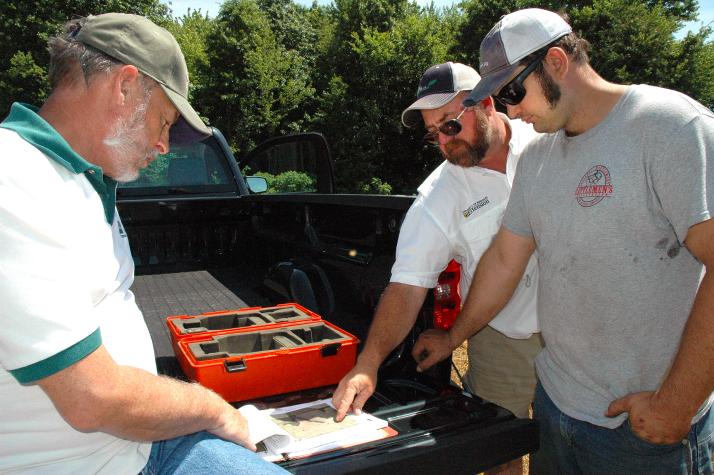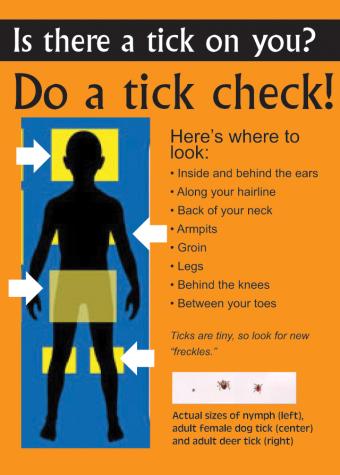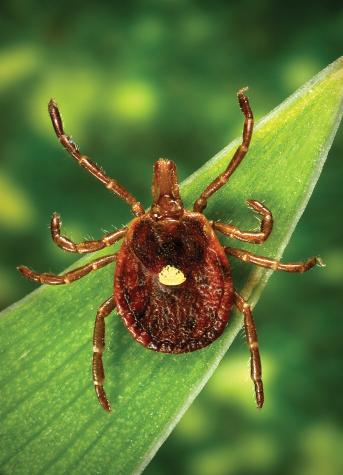
Belly fat is linked to health risks
People with a lot of belly fat are at a higher risk for health problems than people who carry fat in other areas. Some of those health problems include diabetes, some types of cancer, high blood pressure, sleep apnea, heart disease and dementia.
Waist size can be indicator of prediabetes
Even in the 21st century, a tape measure may be quite telling. The past few years have seen the emergence of useful and powerful electronic devices equipped with sophisticated sensors that check our heart rate, blood pressure, steps, etc. These tools help us keep our health in check. The tape measure is not as widely used but it can reveal a lot.
Live like your life depends on it
You can improve your health and prevent or lessen the effects of chronic diseases through diet and exercise. By investing a little time in your health, you can live a longer, healthier life.
Walking is the best medicine
Ancient Greek physician Hippocrates (known as the father of Western medicine) once said, “Walking is man’s best medicine.” What a relatively simple and inexpensive “pill to take” to make such a big impact on maintaining and improving our health.
Small steps to heart health
February is National Heart Month, so it’s a great time to make a change for better heart health. Heart disease is the leading cause of death in the United States, with stroke coming in fifth, according to the American Heart Association. Both of these conditions result when blood flow is reduced or stopped altogether. But there are steps people can take to reduce the risk.
Healthy habits help you live longer
Longevity appears to be more about healthy lifestyle than genes. It is 25 percent genes and 75 percent lifestyle, according to Steven Austad, author of the book, "Why We Age." A study from the University of Cambridge in England, which followed 20,000 middle-aged men and women for 11 years, found that nonsmokers with the healthiest eating and exercise habits lived longer than people with the worst habits.
The gift of time
“The best thing parents can spend on their children is time, not money.” — Anonymous
Quality heifers inspire strong bids; average price $2,427 at Fruitland
COLUMBIA, Mo. – Show-Me-Select Replacement Heifers averaged $2,427 with a top price of $3,500 at the spring sale at Fruitland (Mo.) Livestock Auction, Saturday, May 7.“This sale was quality over quantity,” said Erin Larimore, University of Missouri Extension livestock specialist, Jackson.Half of the 121 heifers were registered stock. Of those, 111 carried fetal sexed calves. The spring sale sells replacements that will calve this fall…
Balancing the parent role with relationship needs
It’s challenging for new parents to manage their new parenting role and their couple relationship. The joy of having a baby leads to a transition for couples that can strain even the best relationships.
Happy relationships good for health
Why do healthy relationships matter? Research has shown that there are physical health benefits from healthy relationships and marriages. For instance, married people have longer life expectancies than single people, especially married men.
Balancing responsibilities
Do you ever feel as if you are trying to juggle too many items at the same time? Do you care for your kids, go to work, attend school activities, take care of aging parents, help with social events, attend meetings, maintain the car, keep up with the house or apartment, do the shopping, fix the meals and...? The list goes on and on. And when is there time in the day to take care of you?

Business aims to link autistic workers with tech jobs
COLUMBIA, Mo. —Teacher Teri Walden and physician Becky Llorens met a couple of years ago and bonded over a common concern. Each has an autistic young adult son seeking work. While helping their sons find jobs, the two Columbia women did something they never dreamed they would do. They started a business, with guidance from University of Missouri Extension.
Drought cuts pasture growth, farmers face culling cow herds
COLUMBIA, Mo. – In dry weather with short pastures, Missouri cow-herd owners face tough culling decisions. One way to match cows’ needs to available grass is to sell cows.Give careful thought to which grass eaters go first, says Eric Bailey, University of Missouri Extension beef nutritionist. Under drought stress, identifying those cows becomes urgent.
Mulch ado about something
Mulch conserves moisture, suppresses weeds, and enriches soil. Use 2–4 inches of organic mulch like pine bark or grass clippings for best results.

Master Gardener nurtures school garden that fuels love of food, community
Includes sidebar, “Tips for gardening with children.” ST. LOUIS – A Master Gardener nurtures little minds and mouths at Sacred Heart Villa, a preschool in St. Louis. University of Missouri Master Gardener Margaret Grant teaches preschool students to grow what they eat and eat what they grow. The program is in its second year.
Farmers seek forage options as drought cuts grass growth
COLUMBIA. Mo. – Shortage of cattle forage forces some Ozark herd owners to chop trees to feed leaves. That method was used in big droughts of the 1930s and 1950s.Damage comes from more than an intense drought, said Craig Roberts, University of Missouri forage specialist in a weekly teleconference. Regional extension specialists update state staff on current problems.Roberts says forage shortages date from dry weather last fall.

MU Extension, NRCS partner to help farmers convert cropland to pasture
WELLSVILLE, Mo. – Matthew Spiers wants to convert cropland to pastureland for grazing.Through a joint effort by University of Missouri Extension and USDA’s Natural Resources Conservation Service (NRCS), Spiers plans to build a rotational grazing system so he won’t have to rent more pastureland to expand his cattle herd.

Ticks prevalent as deer season approaches
BETHANY, Mo. – Deer hunters may come home with more than trophy antlers this hunting season. Adult deer ticks are most prevalent in the fall as they make a last-ditch effort to find a warm home before winter. A new University of Missouri Extension guide by extension entomologist Richard Houseman offers suggestions to prevent infestation and check for ticks, which can make their hosts targets for Lyme disease, Rocky Mountain spotted…

New MU Extension guide available on ticks
COLUMBIA, Mo. – There’s a new University of Missouri Extension guide to discuss one of summer’s old pests. “Guide to Ticks and Tick-Borne Diseases” is part of a series of manuals on integrated pest management from MU’s Plant Protection Programs. The guide is available for $5 at county extension centers or as a free download at extension.missouri.edu/publications/ipm1032.
Stress reduction for a healthier you
Discover effective techniques for reducing stress and improving mental well-being through relaxation, time management, and building a healthy support system.
Different strategies for attaining happiness
Discover effective strategies to increase happiness, including fostering relationships, practicing kindness, and staying positive to improve your well-being.
PSRI Technologies, LLC – Jefferson City & Chesterfield
PSRI Technologies, can I help you?” “Good morning, PSRI Technologies.”
Becoming more resilient
Discover strategies to enhance resilience: build connections, maintain optimism, help others, embrace humor, nurture spirituality, and prioritize health.

Central Ozark Machine, Inc. – Alton
Family‑owned Missouri machine shop crafting precise aerospace parts for Boeing, Lockheed & military, thriving in a rural HUBZone.
Innovet Electric – Affton
Innovet Electric offers electrical, telecom, and construction services, focusing on veteran hiring, government contracts and fostering strong community ties.
